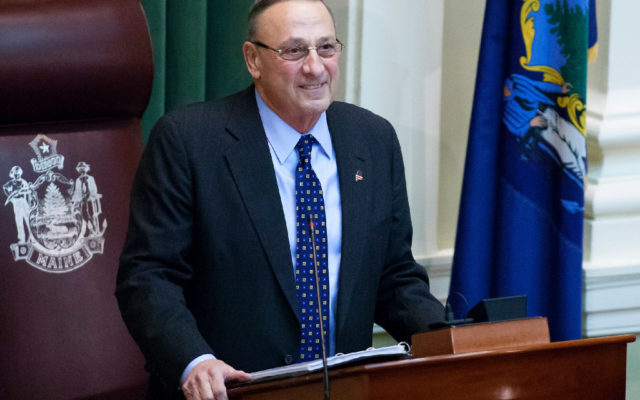
We must not be fiscally irresponsible in implementing Medicaid expansion
It took a lot of work to balance Maine’s budget, bring fiscal responsibility to state government and restore our rainy day fund. Expanding Medicaid must maintain a balanced budget, protect our reserves and not raise taxes on hard-working Mainers.
For seven years, I have made very tough decisions to move Maine from poverty to prosperity. My administration has always put forth budgets that provide services to hard-working taxpayers at an affordable cost.
The Legislature’s budgets are driven by special interests, and they just push costs down the road. We shut down state government this summer to negotiate a budget Mainers could live with. But some programs are not funded in the second year, and the Legislature doesn’t know how fill those gaps.
On top of that, we now must fund Medicaid expansion. The referendum did not specify how to pay for the state’s massive share of the costs. Remember, before the federal matching dollars come to Maine, we must pay our share first.
In order to implement Medicaid expansion, the Legislature has to find the money to pay the bill. DHHS estimates the cost of expansion will be about $63 million next fiscal year, then $82 million the next and about $100 million each year thereafter—that’s nearly $500 million from Maine’s taxpayers in five years.
Unlike governors before me, I refuse to take money away from our nursing homes or put vulnerable people on waitlists to pay for Medicaid for able-bodied adults who should be working. I refuse to raise your taxes. And I don’t have another liquor bond to sell.
Maine is a poor state. We cannot count on our economy to generate enough new revenue to cover expansion, and we must be prepared to pay for it in a recession — what goes up always comes down.
The credit ratings agencies are watching us. They saw the disastrous results after Maine expanded Medicaid in 2002. With another expansion, Moody’s stated that Medicaid expenditures “will force the state to cut spending in other areas, raise revenue or look for other budget-balancing measures.” Credit agencies know Legislatures have poor track records of making touch choices.
Expansion will put 24 percent of our population on Medicaid — one quarter of our people will be getting 100 percent of their healthcare paid for by the taxpayers. Such high usage means a big bill. If — and when — the federal government chooses to cut or eliminate its share, Moody’s explains that Maine “would face budget pressure if it decides to maintain similar levels of coverage.” In other words, expanding Medicaid will take us back to 2002 and result in annual budget shortfalls, higher taxes, unpaid bills to hospitals and cuts to services for our most vulnerable Mainers.
Taking the time now to fund this properly can mitigate some of these risks. We must get this right.